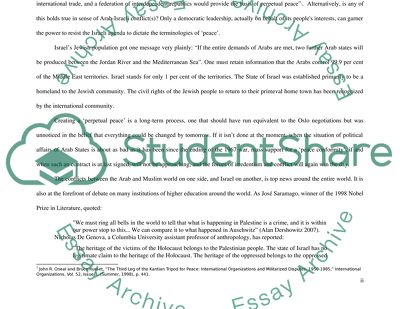Cite this document
(“Kants theory of perpetual peace and Arab-Israeli politics Essay”, n.d.)
Kants theory of perpetual peace and Arab-Israeli politics Essay. Retrieved from https://studentshare.org/politics/1523774-kants-theory-of-perpetual-peace-and-arab-israeli-politics
Kants theory of perpetual peace and Arab-Israeli politics Essay. Retrieved from https://studentshare.org/politics/1523774-kants-theory-of-perpetual-peace-and-arab-israeli-politics
(Kants Theory of Perpetual Peace and Arab-Israeli Politics Essay)
Kants Theory of Perpetual Peace and Arab-Israeli Politics Essay. https://studentshare.org/politics/1523774-kants-theory-of-perpetual-peace-and-arab-israeli-politics.
Kants Theory of Perpetual Peace and Arab-Israeli Politics Essay. https://studentshare.org/politics/1523774-kants-theory-of-perpetual-peace-and-arab-israeli-politics.
“Kants Theory of Perpetual Peace and Arab-Israeli Politics Essay”, n.d. https://studentshare.org/politics/1523774-kants-theory-of-perpetual-peace-and-arab-israeli-politics.


